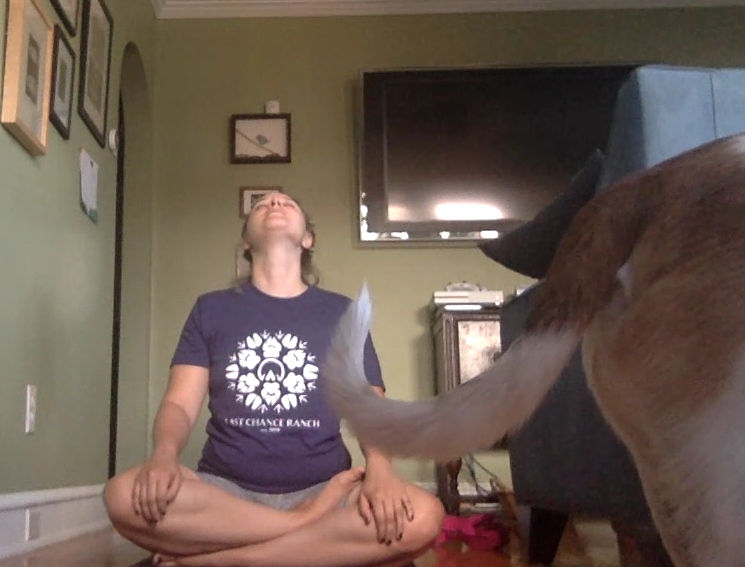The 5 Yamas: Aparigraha (Non-Possessiveness)
- Samantha William

- Oct 9, 2023
- 3 min read
Aparigraha translates as "not taking more than one needs."
I love every one of the yamas and aparigraha is no different. We are a society of sensory-pleasing, addicted humans who have a hard time letting go. We tend to grasp things or ideas quickly and hold on tightly. Letting go when the time is right and when it’s not of service is aparigraha.
During our practice, it is important to not be too analytical trying to obtain correctness. This is a form of grasping that can show up in our practice. Sometimes it’s helpful and we should tune in, other times it can be a distraction or a symptom of something else like inner agitation or fear. Thinking we should be able to do something someone else can do or try to conquer asanas is a form of greediness.
Do not be attached to progress or asanas. Both come and go depending on life. When we watch and wait for progress in certain areas, we miss it happening in other places. It’s best to practice with no preconceptions or expectations and just let the experience unfold with no judgment. Chaturanga is an asana that comes and goes for me all the time. These days it goes way more than it comes depending on many factors. If I were to measure the progress of my practice based on how competent I am in executing chaturanga I’m going to be pretty disappointed. So instead I don’t care. If I can do it, great! If not, I’m off the hook and can explore something else. It doesn’t matter. I come to my mat to breathe and balance out my vessel. Everything changes (parinamavada) for good reason, including how our practice suits us from day to day, month to month, year to year.
Taking more than we need is a form of greediness. Eating beyond our nutritional needs is a huge issue in our society. When it comes to eating to fill our needs it’s important to hit all of our nutritional needs without consuming empty calories and/or overeating. Hara Hachi Bu’ (Confusious), meaning ‘eat until you are eight parts full’ is a good rule of thumb.
Excessively buying stuff and/or hoarding is a violation of this yama. What we have excess of, someone else is going without or we just didn’t need in the first place. Excessively buying and/or hoarding causes suffering to ourselves and others in a variety of ways. Excessive buying generates a ton of waste, from the energy used to produce it, the pollution the process puts off, to when it ends up in the landfill (more pollution). It keeps the demand on production, when in most cases child labor and slavery are involved in the production process. Hoarding causes suffering (dukkha) through attachment (upādāna).
Tyler Durden said it best-
“The things you own end up owning you.”

Aparigraha governs self control. Constantly needing to indulge the senses causes suffering (dukkha) which clouds the mind (chitta vikshepa). Using Aparigraha as a filter helps us to not get attached to physical asanas or progress in asanas, just appreciate being there in that moment. It helps us to keep in check our eating habits by requiring that we only consume what we nutritionally need to function optimally. It teaches us to curb our spending habits, tighten the belt on our energy consumption and to rely less on material possessions. It also teaches us to let go. This is freedom.
Enjoy the present. Let go of the past. Don’t worry about the future.
Keep practicing, yogi’s!




Comments